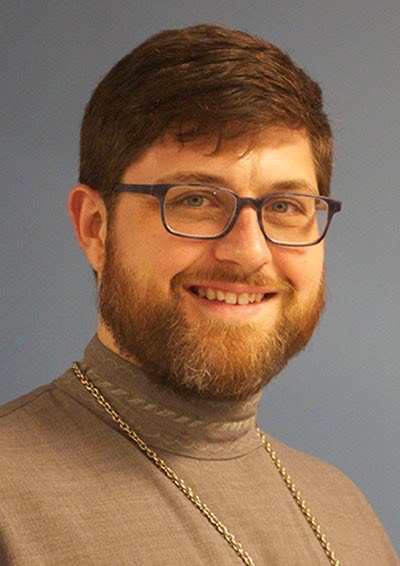
Father Andrew Summerson has joined St. Michael’s Faculty of Theology as Assistant Professor of Greek Patristics. Describing his work in Patristics as a vocation, Summerson says that, as a Byzantine Catholic priest and a scholar of the tradition, his goal is “to be a responsible interpreter for its members and for the scholarly and ecumenical community of theologians. As Eastern Catholics, our theological grammar is that of the Fathers. In order to be properly fluent in my own tradition, I went about learning their language.”
Summerson holds an S.Th.D. in Patristic Theology from the Pontifical Patristic Institute “Augustinianum” in Rome. His book, Divine Scripture and Human Emotion in Maximus the Confessor: Exegesis of the Human Heart, was published by Brill earlier this year.
His most recent teaching appointment was at Calumet College of St. Joseph, in Indiana.
“Andrew’s passion for, and dedication to, Patristics will serve our students well. We have pleased to have such a strong addition to the Faculty” says Interim Dean John L. McLaughlin.
“The University of St. Michael’s College has a proud history in its concern for historical studies while engaging the contemporary world,” says Summerson. I see my own work for St. Michael’s with the Metropolitan Andrey Sheptytsky Insititute of Eastern Christian Studies as aligned with St. Michael’s heritage: engaging the touchstones of the Eastern Christian past for the life of the world we live in today.”
In the fall semester, Summerson will teach History of Christianity I and Foundations to Eastern Ethics, while in the winter semester he will teach Contemporary Issues in Eastern Christian Moral Theology and The Three-Personed God: Eastern Christian Perspectives.
Early Christian texts aren’t meant to be sipped like wine; they must be chugged like beer,” he says. “I like to read primary sources with my students and treat them not like delicate artifacts, but living voices that speak true statements about God and the Church today.”
Summerson’s position is a Contractually Limited Term Appointment. The position, which is renewable twice to a maximum of three years, is held in conjunction with the Metropolitan Andrey Sheptytsky Institute of Eastern Christian Studies.

